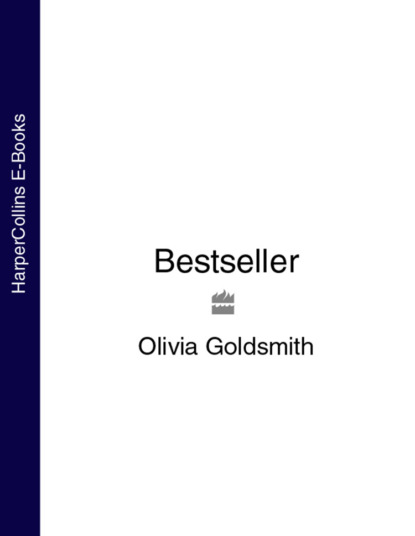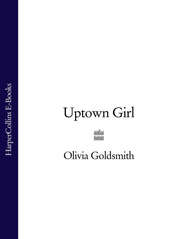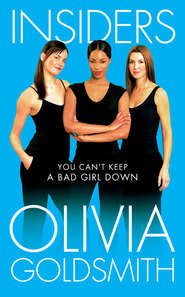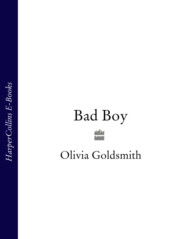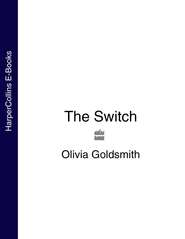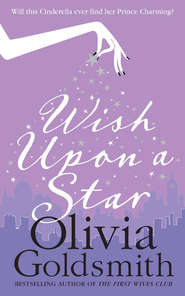По всем вопросам обращайтесь на: info@litportal.ru
(©) 2003-2025.
✖
Bestseller
Автор
Год написания книги
2019
Настройки чтения
Размер шрифта
Высота строк
Поля
Each time Daniel finished copying a page, he tore Judith’s typewritten version into many strips and, instead of throwing them in his wastepaper basket, put them into his pocket. It was better to be safe than sorry, as his grandma used to tell him. Safe from what, or sorry about what, he wasn’t exactly sure.
And the fact is, he didn’t feel safe and he might indeed be sorry. He hadn’t received tenure last year, but then how could he reasonably expect to after being caught in adultery, breaking up his marriage, and marrying a student? Eleanor, his first wife, had been well liked in the department. Although it wasn’t illegal, leaving your no-longer-so-young-looking wife for a much younger student certainly was not approved of. A definite frost had descended upon the women professors in his department, and Daniel wondered if now, despite his good work, he might never achieve tenure. No, he certainly wasn’t safe.
But sorry? Was he sorry he’d married Judith? Well, he surely was sorry that her father had taken it so badly, the anti-Semite. The old bastard was loaded, and if Daniel hadn’t exactly counted on living off some of the Hunt glassworks fortune, he had at least looked forward to the possibility. He had already played the we’re-young-and-in-love-and-poor-as-college-students game once with Eleanor, and he no longer found it amusing. But Judith might, in the end be his ticket out of here. Daniel looked around the cramped cubicle that was his office. It was painted a shiny khaki color, God knows how long ago. Sometime after the Korean War? Or World War II, or maybe even World War I? The paint was flaking in more than half a dozen places. If he ever wanted to commit suicide, Daniel reflected, he probably had enough lead in the available paint flakes for effective poisoning.
Daniel looked out the drafty window. The room was so badly heated that he kept his coat on all the time. Except, of course, in the summer, when the room was so hot that he sweated. Now it was hard to believe that he had once spread Judith on this very desk and had the energy, in the heat, to make love to her. Daniel shook his head.
He was about to finish copying out the last page when there was a knock at the door. Guiltily, he folded up the final page and thrust it deep into the unused pages of his notebook. He left the notebook lying open on the half-finished page. “Come in,” he called.
The shining blond head of Cheryl Jenkins hesitantly peeked around the door. “Is it all right?” she asked.
“Fine,” Daniel said, “just fine.” The girl entered the room, and it seemed as if the sun entered with her. It must be her “hair, Daniel thought. It was so very blond. It must be natural, because dyeing it would never leave it so glossy, so very shiny.
“I’m sorry to bother you,” Cheryl said, “I mean, I know you have lots to do—”
“No, don’t worry about it. I’m just doing a little editing on my novel.”
“Your novel?” Cheryl breathed. “Oh, I really shouldn’t be bothering you.” She turned as if to go, and Daniel lurched across the small room and took her hand,
“It’s all right, Cheryl. I’d be happy to help you. What is it?”
The girl colored and took her hand away but looked up at him. She was very short, and suddenly two thoughts occurred almost simultaneously to Daniel. The first was how ungainly Judith was compared to this tiny sprite. And the second was whether Cheryl’s pubic hair was as blond as the shiny cap of hair on her head.
Cheryl was rummaging through her purse. She took out two crumpled sheets of paper. “I’ve never read anything aloud at the writers’ circle,” she said, “but I thought this wasn’t too awful. I mean, not really bad, and so I thought, maybe … well …”
Daniel took the two sheets from her trembling hand and read them quickly. The writing was clear and a lot more forceful than Cheryl was herself. In fact, it was better writing than the stuff Chuck Tasity, another student, turned out by the truckload and read promiscuously. “This is really good, Cheryl. You should read it.”
Her smile of pleasure was a delightful reward for his praise. “Really?” she asked. He nodded.
“Really,” he told her.
“Oh, I’m so glad you think so. I’ve gotten so much out of your class and the writers’ circle. It’s really improved my work.” She paused and blushed again. Daniel wondered if her nipples were truly pink—the girl was a china doll. “You’ve done so much for me, I wish I could do something for you,” Cheryl said.
Daniel smiled, resisting his impulse. Jesus Christ, it was hard to be married. “Maybe you could buy me a cup of coffee sometime,” he said.
She hung her head, then looked up from under her lashes, at him. “I could type for you,” she suggested. “I noticed that all of your drafts are handwritten. And the typed versions are—well, I could type for you,” she repeated in a very small voice.
Daniel smiled. Not only was Judith a lousy typist, but she insisted on using her stupid high school portable typewriter. “Maybe we could talk about that. Have you got a word processor?”
“Oh, yes. I’ve got a laptop. And a laser printer,” she told him.
Daniel wondered where she got the money for that kind of equipment. He looked down again at the sheets of paper in his hand. “You have real talent, Cheryl.”
“Do you really think so?” The girl blushed again. She was adorable.
“Yes, I do. Someday, with the right guidance, you could be a successful writer.”
The girl said nothing, but she was clearly transported. Those were the magic words, the words that all neophytes longed to hear. Cheryl looked up at him, full in the face for the first time. “I feel like you’ve given me so much already,” she breathed.
Do you know I’m deeply attracted to you? He had almost said it. The words had formed in his brain and his lips were about to begin moving when there was another knock on the door. This caller didn’t wait to be asked in. Don Kingsbury, the head of the department and just about the only member who still spoke to him, smiled in the doorway. Cheryl turned and, without another word, walked past him and out of the room.
Don, oblivious, raised his brows. “How’s it going?” he asked. Daniel shrugged. Don was a big guy, well over six foot, and chunky. He sat himself on a corner of the desk and crossed his massive legs. Daniel stood up to be above his eye level. He wondered how much Don had overheard of his talk with Cheryl. Don merely glanced down at Daniel’s notebook.
“Ah, the book. How’s that going?” Don asked.
“Not too badly,” Daniel admitted noncommittally. “You know, I’m not attempting art here. Just something that’s workmanlike, something that can be published.”
“Yeah. Something the movies will buy,” Don said, laughing. “Will you read it at the writers’ circle?” Twice each month Daniel led a writers’ group meeting in which participants read their current work and got feedback and, sometimes, criticism. Especially from Daniel.
“I already have,” Daniel said. “I might read some more tonight.”
“Well, I’ll walk you over there. I thought I might sit in. You know, I really do admire the way you’ve sustained that group. And you’ve done an excellent job on the seminars. Bringing up those first-time novelists for the panel discussion was a great idea.”
“I did have to pull a few strings,” Daniel said modestly. Actually, it hadn’t been too difficult to get them. After all, who the hell wanted to hear the experiences of a literary first novelist?
“And I was amazed when you got Alfred Byron up here.”
Daniel nodded. That was a coup. Alfred Byron was a prestigious agent, but when one of the young writer’s books had taken off—a young writer Byron represented—he’d been appreciative that Daniel had invited him. In return he’d agreed to give a brief talk. He’d come back again to moderate a panel discussion. And Daniel secretly planned for Alfred Byron to do much, much more.
“I think you are really bringing a breath of reality to the department,” Don said. “You know, we have so many students who want to write and don’t have a clue about what the business of getting published is all about. And then we have our ivory-tower academics who believe that any writer still living can’t be worthwhile. You’ve really added positive diversity to the department.” Daniel felt his heart lift. Maybe he wasn’t as unsafe or as sorry as he had thought.
“I’m certainly trying. I’m trying to make a difference.” Did that sound too corny?
“Well, you’re succeeding. I don’t know how you manage to teach your classes, schedule these events, and write a novel on the side. I certainly couldn’t do it.” Don laughed heartily. Of course, he could afford to—he had tenure. He was the head of the whole fucking department.
Daniel paused for a moment. He ought to mention that he Was working on the novel with Judith, that she was drafting much of the book, but somehow he felt constrained. Best not to bring up Judith and all of that again, not at this moment, when Don was being so positive. “Yes, it’s hard,” Daniel admitted, “but I’m interested in it all. That takes the edge off.”
“So, do you mind if I sit in on the writers’ circle? Would it be too intrusive?”
Daniel thought of how shy Cheryl Jenkins was, and of nervous Bob Hadley. Of course it would be an intrusion, to have the head of the department casually eavesdropping on their work in progress. But Daniel knew that Chuck Tasity would grandstand, and perhaps—just perhaps—he himself would read some from his notebook. That wouldn’t hurt.
“It wouldn’t be an intrusion at all,” Daniel said and smiled at Don. “Why don’t you join us?”
Judith typed the last words of the last sentence of the last chapter of the book and then sat for a moment, her hands still raised above the keyboard. She felt empty and almost frightened.
Slowly, she brought her hands down to her lap. Before her, carefully piled on the card table, were all of her completed chapters, each one neatly revised and retyped according to Daniel’s critique. They made a large, squared white stack. A stack of her work—well, their work together. In the silence and space of the deepening darkness outside the small turret room, Judith felt the question hanging over her.
What next?
She thought she had read somewhere that writers often felt a sadness, and emptiness, when they finished a book. But sadness was not exactly what she felt. Bravely, she sat still and tried to feel what it was that felt so constricting. She was relieved the book was finished, because it had been such hard work. Each morning she had had to force herself to sit down at the card table. Each empty sheet of paper stared at her like a challenge; each crumpled sheet in the wastebasket was a silent rebuke. And it had been hard, too, being so often criticized by Daniel.
But, she realized, it had kept her occupied. The feeling she had now was close to fear. What else did she now have to do? Her labors were over, and from here on it would be Daniel who had to do the work. Daniel would have to begin using his connections to get the book published and bring in the money they so desperately needed. She should be elated, but she was frightened instead. Don’t be silly, she told herself. You’ve done it. You’ve really finished it. You never thought you could.
Judith felt another little chill. What if, despite his boasts and the people he had “collected” at seminars and panels, what if Daniel was wrong and the book was no good? What if he couldn’t sell it? Had she wasted so many hours, so much energy and pain? And whose failure would it be?
Because Judith had not written what she had wanted to write. That book, both she and Daniel agreed, would have been too uncommercial, too literary. How large a market was there for the story of an upper-middle-class girl whose father virtually ran the town they lived in? The girl would find herself pregnant by a boy from the wrong side of the tracks, if there were tracks in their town. It was, as Daniel told her, “too revelatory,” “too small,” and “too artsy.” Just another sensitive coming-of-age book.
This book would be bigger than that one could ever be, if less felt and less real. Like the authors of many commercial books, she—well, they—had plucked the idea from the newspapers. Judith had been reading the horrific story of a woman who had reported her three children missing, only to later admit that she herself had murdered them. Judith had cried over the story, not only for the babies but for the woman’s demented state. Somehow, Judith understood that kind of desperate forlornness. It was Daniel, listening to her talk about it, who had recognized the hook. And so they had come up with the plot for In Full Knowledge.





